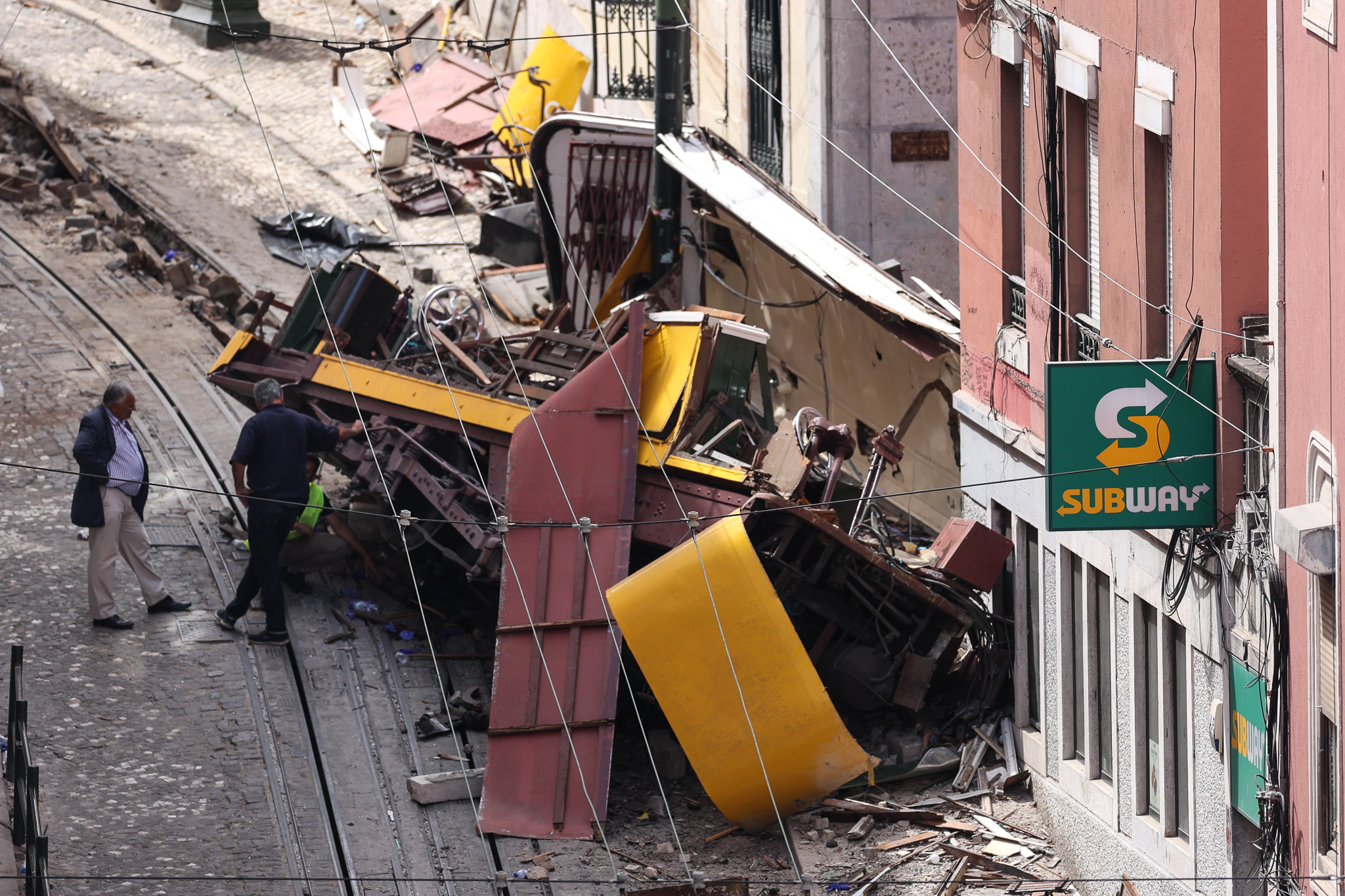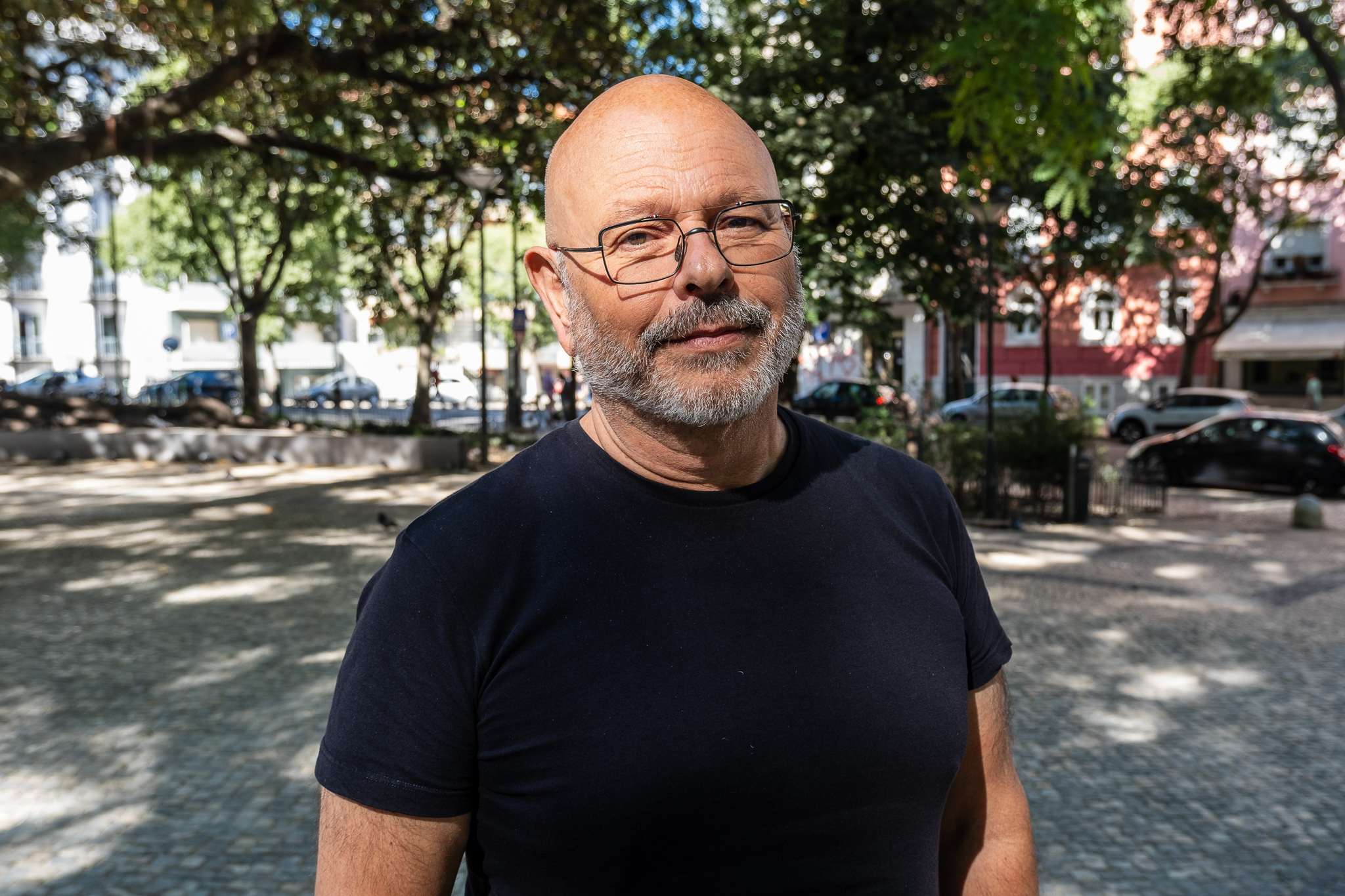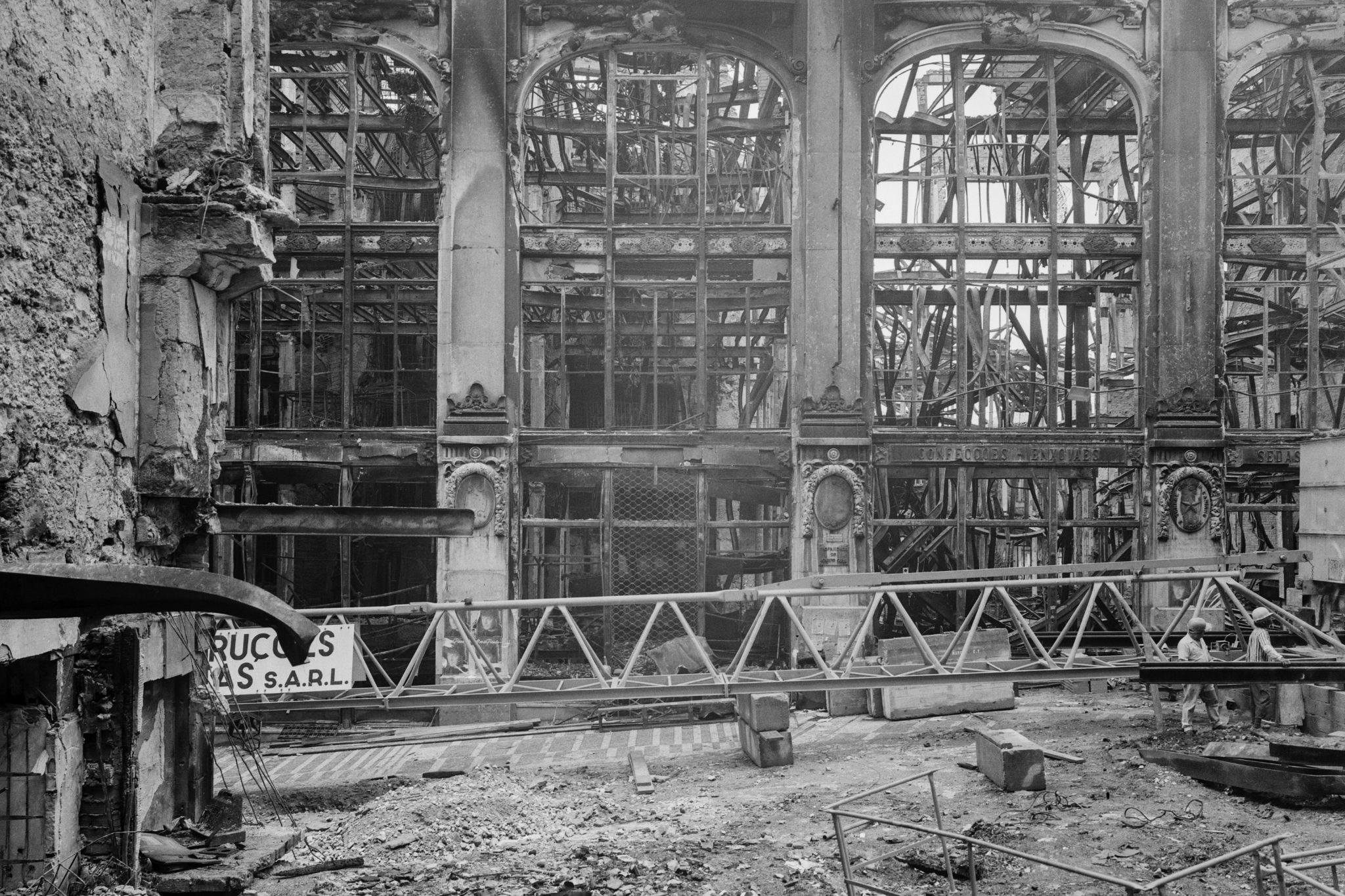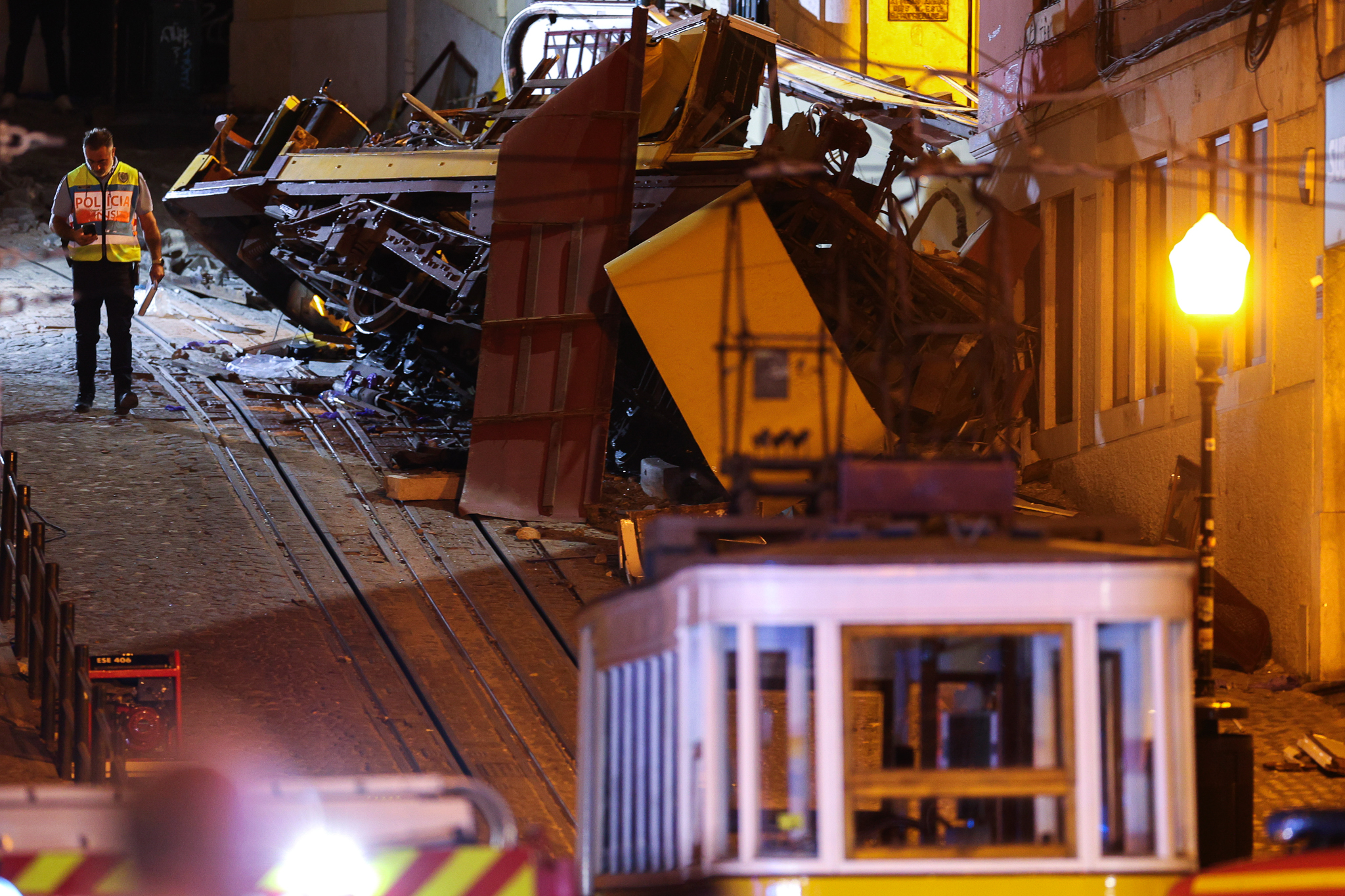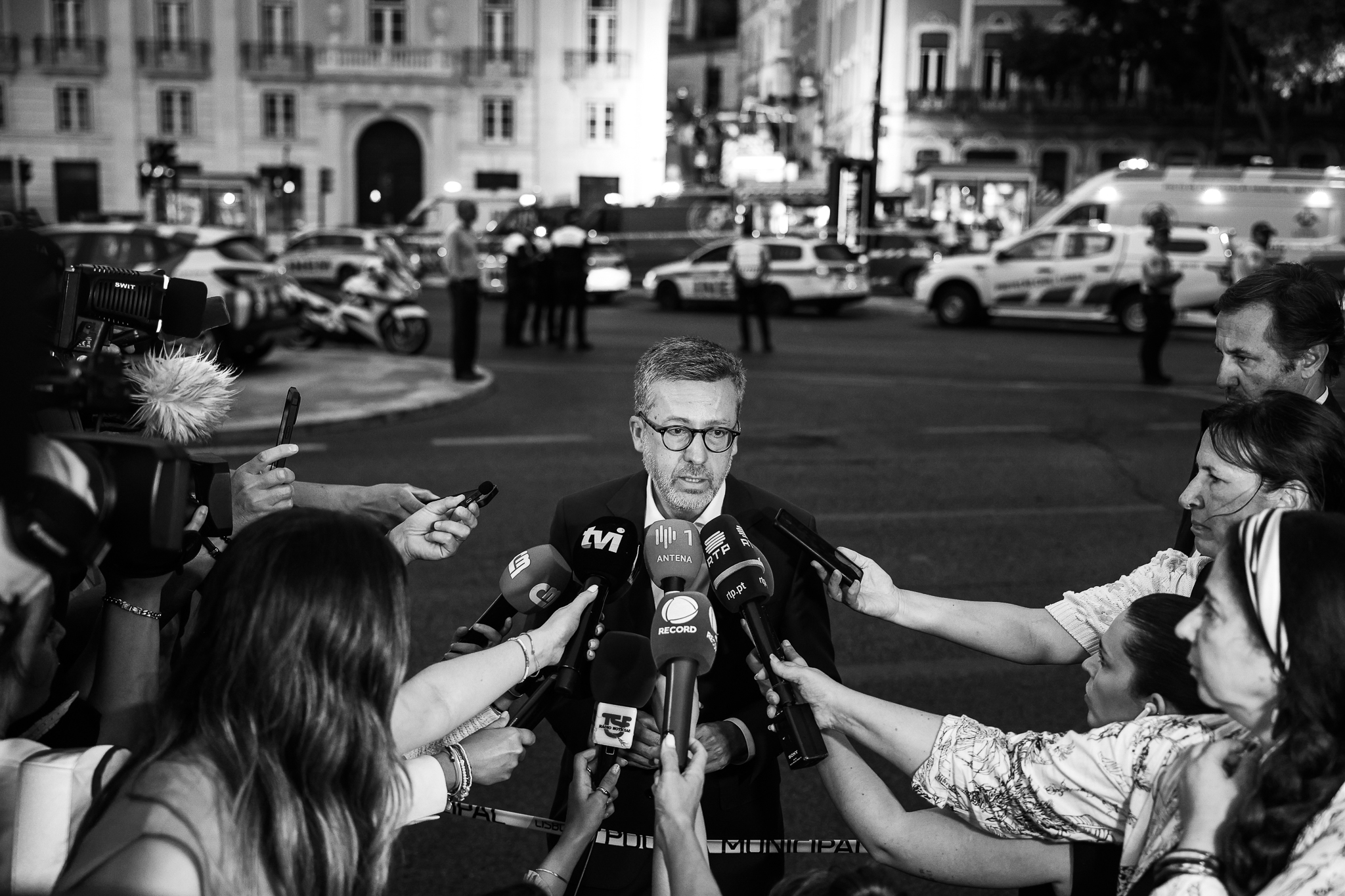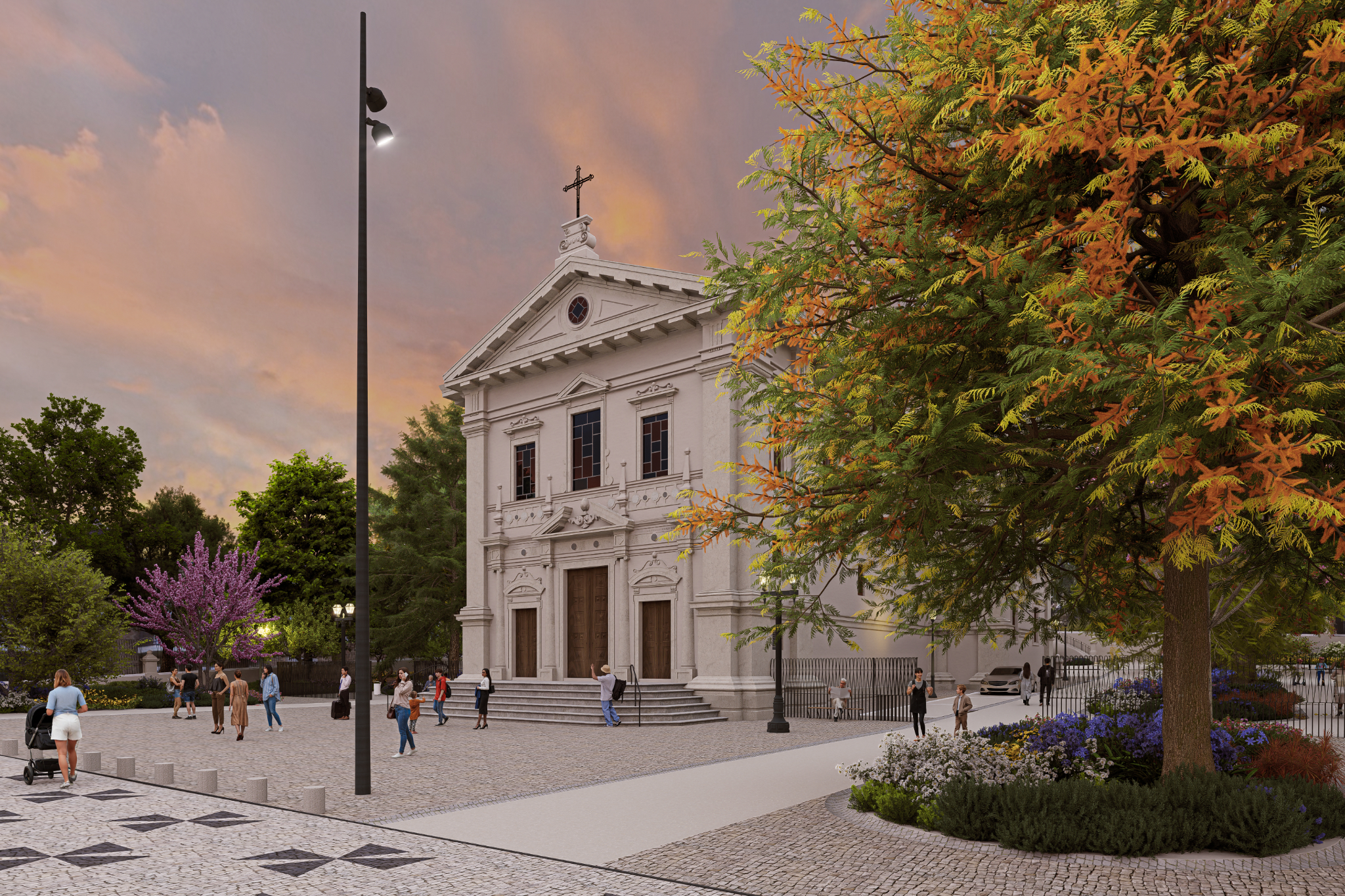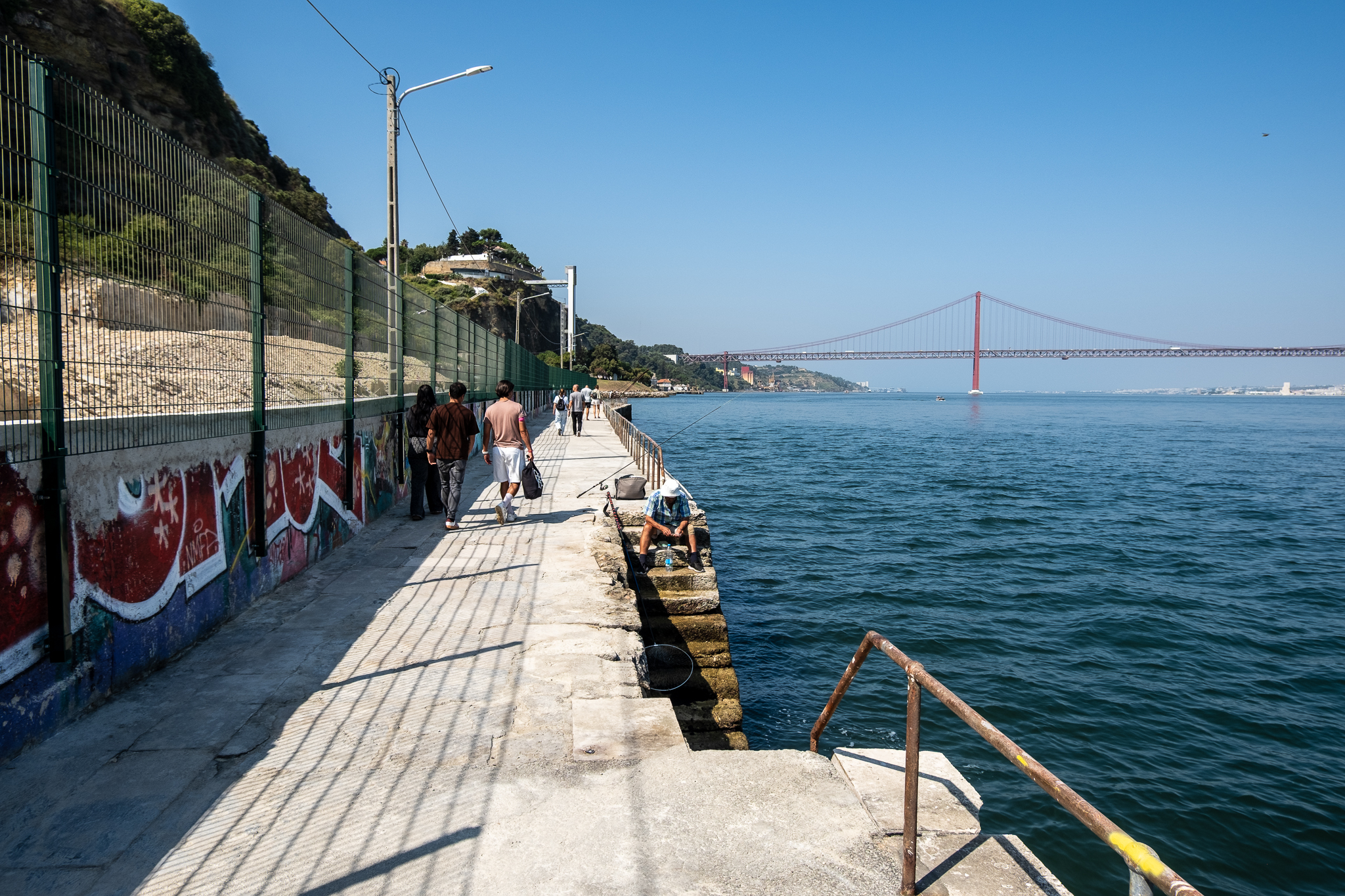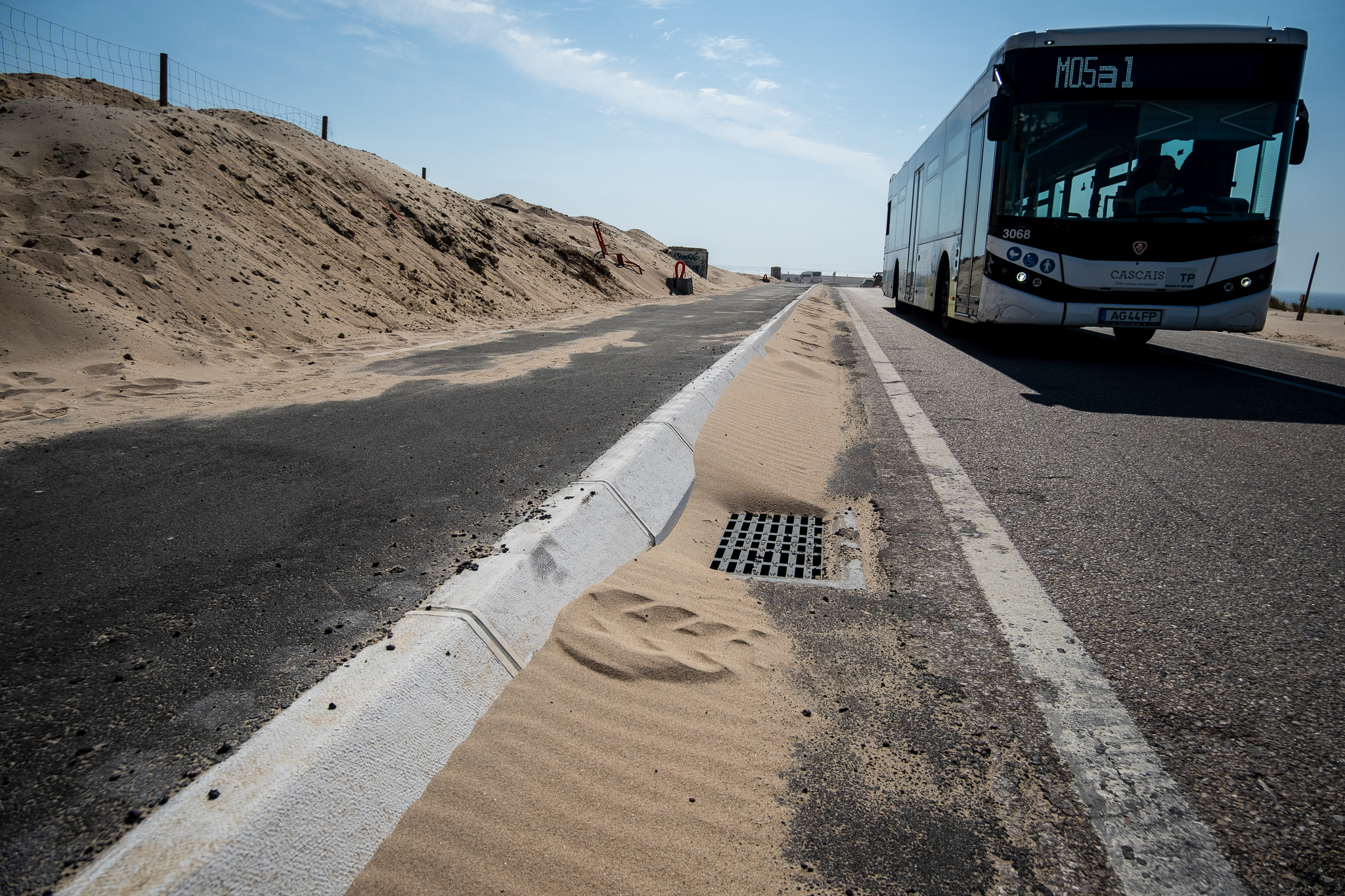In Almada there are also "bike trains" taking children to school. After the success in Lisbon, the CicloExpressos crossed the Tagus and circulate four times a week in the neighboring municipality.

After the success in Lisbon, the "bicycle trains" crossed the Tagus and are already circulating in the municipality of Almada. In a first stage, the project is available at three schoolswith four rounds a week in total - two in Almada and two in Costa da Caparica. We intend to try out this idea, but, given the high adhesion it is having, at least in Costa, we can risk saying that the "trains" are here to stay.
The "bicycle trains" or CicloExpressos consist of bicycle trips to school, where children ("passengers") ride as a groupaccompanied by adults ("machinists") who have received specific training for this activity. In the "trains" can also participate parents, teachers and other members of the school community. They work as a transport service, having, like a normal train, stops and defined schedules where passengers take the train with their own bicycle.

In the municipality of Almada, the "bicycle trains" already circulate for the EB nº 2 da Costa da Caparicaon Tuesdays and Thursdays at Costa da Caparica, and for the EB1 Cataventos da Paz e EB 2,3 D. António da Costaon Wednesdays in the city of Almada. This project is promoted by the City Council of Almada and operated by the cooperative Bicyclingwhich is responsible for the CicloExpressos project in several cities, including Lisbon. The circulations are assured by adult "drivers", with specialized training, and Bicicultura is accepting unsolicited applications for this position (which is paid).
To enroll a child in the train, just do it in this form.
🧭 Schedules and Routes
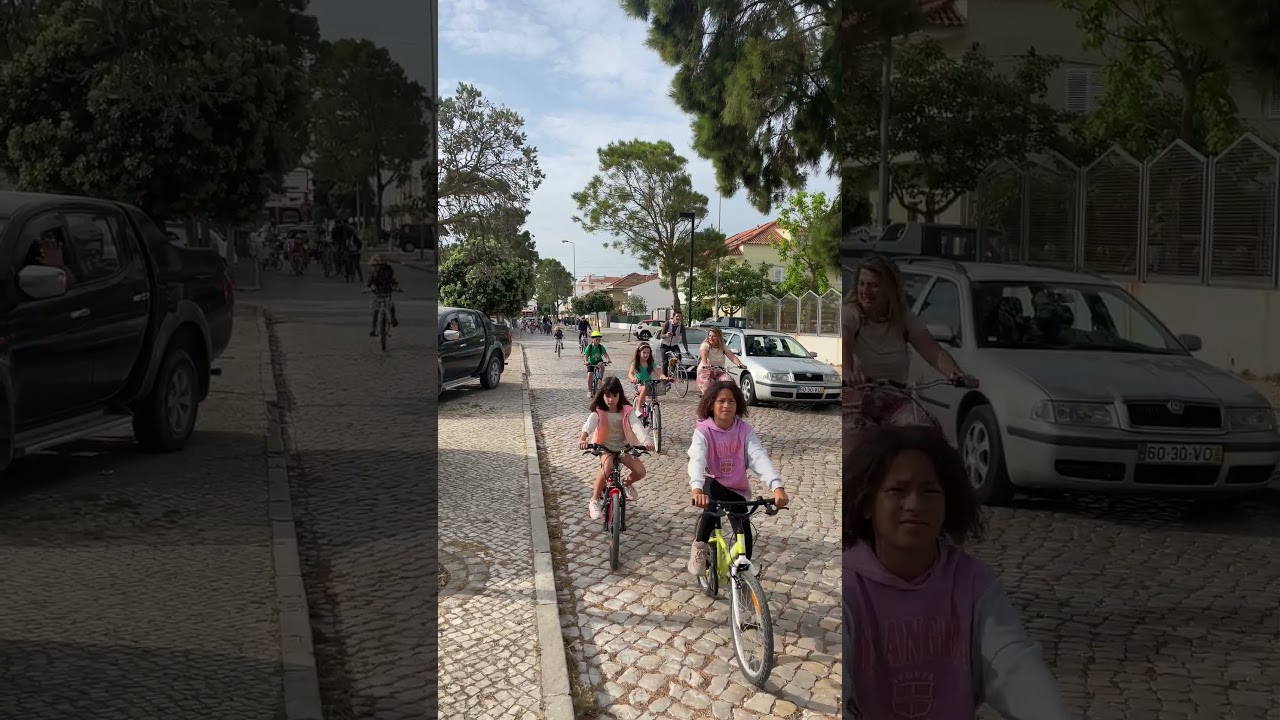
"After enough experience accumulated with the Lisbon case - it's important to explain that Lisbon was the one that gave a big bet when CicloExpresso was not yet a stabilized concept as it probably is today - we decided that it made sense to test this implementation in other places. We thought we had all the conditions to do it, but to be simpler we applied for a line of funding from the +PLUS Fund of Casa do Impacto, from Santa Casa da Misericórdia de Lisboa"., explains Luís Vieira, main coordinator of the CicloExpressos na Bicicultura project. From the +PLUS Fund, they received about 40 thousand euros to launch 10 train lines in five other locations besides Lisbon. "We are achieving the assumptions we set out to achieve"


One year after launching the expansion challengethe "bicycle trains" are already circulating in Bragain Leiria and, soon, also in Matosinhos; and, in the Lisbon metropolitan area (amL), they reached Amadora, a Loures and now Almada. . [There are also CicloExpresses in AveiroThe "Ciclaveiro" is a local association]. "This 40,000 euros of funding from the Impact House has allowed us to offer municipalities to implement the project at a lower value, thereby captivating them to test CycleExpresses in their localities." In Amadora, the existing line works in AlfragideThe project will be implemented in four schools: EB1 Alfragide, EB1 Alto do Moinho, EB2,3 Almeida Garrett and EB1 Quinta Grande. "This line was a reactivation of an informal train, the CicloExpresso de Alfragide, which used to happen by the will of a mother and had stopped working." In Loures, it works on Thursdays a line to the Bobadela EB. "It is a particular project, because it was implemented not by a City Council, but directly by a Parish Council"the one of the Parish Councils of Santa Iria de Azóia, São João da Talha and Bobadela.

"Our big challenge involves empowering the local elements"says Luís, explaining that Bicicultura already had a team in Lisbon capable of doing CicloExpressos, but that now they need to take that accumulated knowledge to the new geographies. "We are developing a process increasingly focused on hiring and training people from the various localities, who already know the territory and are on top of the local dynamics." Luís details that there are clear differences in the operation of the "trains" that Bicicultura is becoming aware of as it leaves Lisbon. "The context is not the same as we normally have in Lisbon; there are different circumstances to which we have to adapt. For example, in Leiria, we are doing bicycle trains for the first time in a rural environment, something that had never been implemented by us before. We've been able to learn from all these contexts and I think the success has been widespread." But there is one common denominator: "Virtually all of the contexts that we're in are low-maturity cycling mobility contexts, meaning they're contexts where the percentage of kids going to school by bicycle per se is quite low."


The first "bike train" was created in 2015 by a father, who decided to start taking his son and friends' children to school by bike, in Parque das Nações, Lisbon. The idea caught on so well - on the very first day 12 children were transported - that Lisbon City Council decided to adopt it. Since the 2020/21 school year, the "bike trains" or CicloExpressos have been a municipal program for school mobility in Lisbon. In 2020/21, "trains" were launched in 11 schools; currently they are present in 25 schools. In each one of them, there is usually one movement per week, since the idea is that cycling to school is perceived by children as something exceptional - and therefore desirable - rather than routine - and therefore boring. In the 2021/22 school year, 220 train rides (802 km) were made in Lisbon and 1465 children were transported.
The "bicycle trains" have proven to be a success, especially among 1st graders. It is in the lines aimed at these age groups that the greatest adhesion of children and their parents is registered. "We have some ideas as to why. It's where this type of activity fits best from the standpoint of matching the level of difficulty, to the degree of autonomy these children already have and to the family wants and logistics."Luís explains. Two of the three lines launched in the municipality of Almada are directed to the 1st cycle. This is the case with EB No. 2 in Costa da Caparica, which runs on Tuesdays and Thursdays and which, on its opening day, registered about 20 participations - even on a rainy eve. The success surprised Inês de Medeiros, Mayor of Almada, who welcomed CicloExpresso upon arrival at the school.

For Medeiros, this kind of initiatives "remind people that, When we call for smoother mobility, for people to walk or cycle more, it's nothing too extravagant. It's just that they take up habits that we all had a while ago, when there were fewer cars“. For the almadense mayor, the basis of this project is "environmental and public health concerns"but CicloExpressos is also an example that we can regain control over our lives and "create times of transition, so that it's not just this sometimes very abrupt and violent transition between home and school or home and work". The climate fight is "it's a struggle also for a quality of life that I think we all have to be able to rediscover or build from scratch".
Luís Vieira goes further: CicloExpressos for school wants to function as a "motivating and enabling agent" for more children to start cycling to school independently. "What we intend is to provide the impetus, that is, to create an action here that promotes reflection on the part of the children and especially on the part of the families"he explains. "We've been getting stories over the years of kids picking up for the first time the bike that was in the garage, or kids asking their parents to learn to ride a bike because their schoolmate is riding a bike."

The 30-year-old civil engineer turned mobility expert believes in the "indirect effects" of these children's group trips to school: "On the other days of the week, when there is no train, children and parents are more likely to start using the bicycle as a form of mobility, to think of the bicycle beyond a leisure possibility - nothing against it, but leisure does not include the full potential that the bicycle can have."
"In addition, we also realize that this is an action also for people who are on the street, to start seeing bikes on the street and children on the street.", points out. "Children and families can go to school autonomously and safely at their own pace, but we know that to get there there are important factors that have to be unlocked. And one of the key drivers of safety is numbers: the more people use this form of mobility, the more likely it is that there will be people using this form of mobility, so all users of the public space will be prepared and will negotiate without so many unforeseen problems."

In Almada, the "bicycle trains" will circulate until the end of this school year and will return at the beginning of the next. The Mayor of Almada discussed with the elements of Bicicultura some ideas for the future of the initiative in the municipality, such as signaling the stops and passing places, even for these elements to serve to raise awareness to motorists. In the first circulation of CicloExpresso in Costa da Caparica there were no unforeseen events, but the passage of the children caused some strangeness still in the city. It will be a question of time, even because the CicloExpressos in Almada seem to be here to stay.

